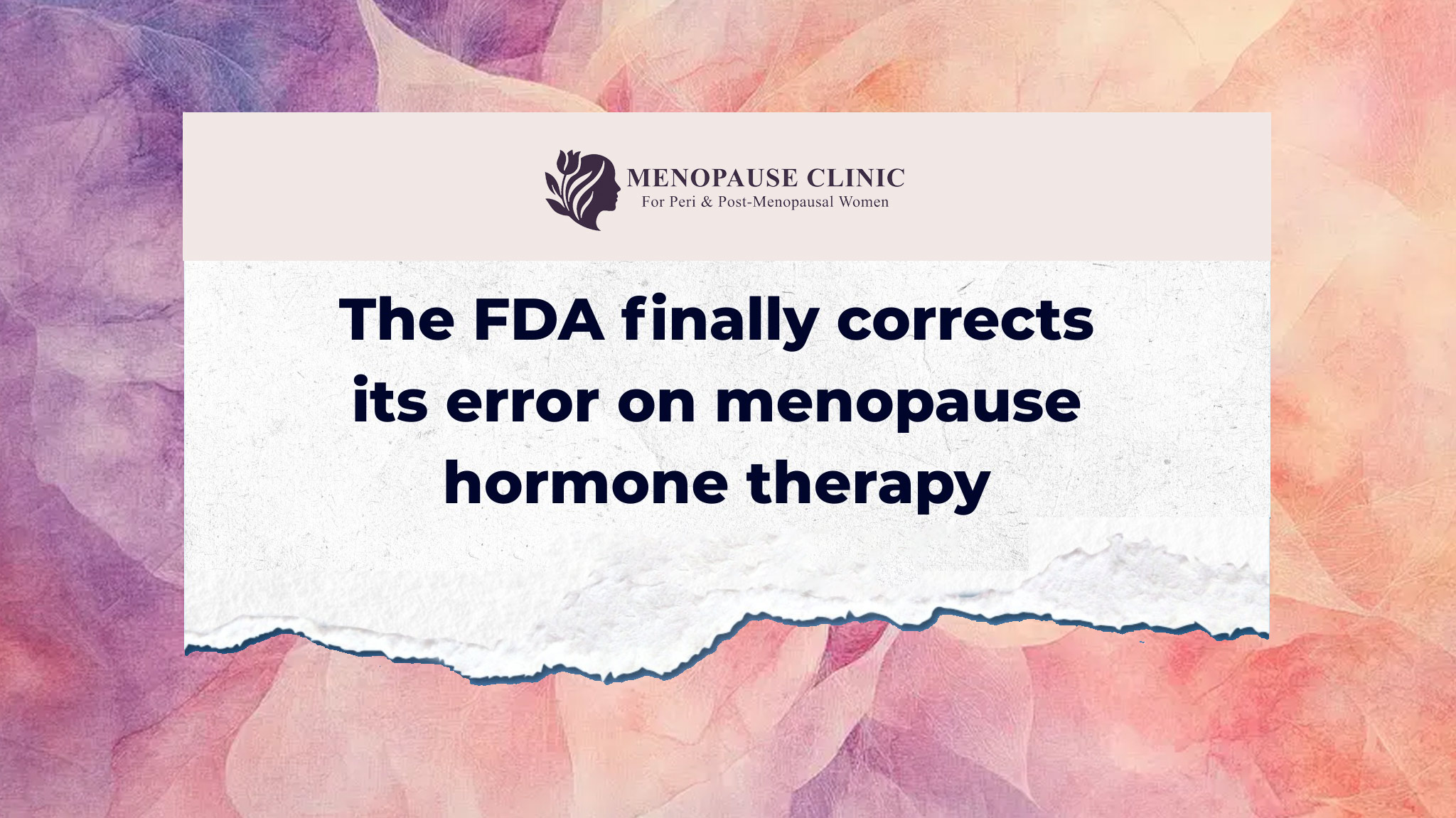The FDA announced November 10, 2025, that it’s removing black box warnings from menopause hormone therapy products, ending a 23-year period during which the agency’s most severe safety alert discouraged millions of women from using what’s now recognized as highly effective treatment.
Black box warnings—the FDA’s strongest safety designation—have appeared on hormone therapy labels since 2003, warning of increased risks for breast cancer, heart disease, stroke, and dementia. FDA Commissioner Dr. Marty Makary called the reversal necessary to “stop the fear machine steering women away from this life-changing, even life-saving, treatment.”
Between 50 and 70 million women were either denied hormone therapy or discouraged from using it over the past two decades, according to Makary. Prescription rates crashed after the warnings appeared, and medical schools trained an entire generation of physicians that menopause hormone therapy was dangerous.
The Study That Changed Everything
The black box warning stemmed from the Women’s Health Initiative study published in 2002. The massive research project suggested hormone therapy increased breast cancer risk, and the medical establishment responded with alarm. The FDA added black box warnings the following year.
But the study had critical design flaws that weren’t initially recognized. Researchers studied women between ages 50-79 with average age 63 who were starting menopause hormone therapy years or even decades after menopause began. They used specific synthetic hormones—primarily Premarin (derived from pregnant horse urine) and Provera (synthetic progesterone)—that differ from commonly prescribed formulations today.
By 2010, researchers reanalyzing the Women’s Health Initiative data discovered something crucial: timing matters. Women who started hormone therapy before age 60 or within 10 years of menopause onset showed a completely different risk profile than older women starting treatment later.
The Science Behind the Reversal
Recent studies directly contradict the fears that drove the black box warning onto menopause hormone therapy labels.
A 2025 study found women taking estrogen before age 55 had a 14% lower risk of breast cancer compared to women not using hormone therapy—the opposite of what the original warnings claimed.
An analysis of 30 clinical trials involving 26,708 women found hormone therapy was not associated with increased cancer mortality. Women who started before age 60 actually showed decreased mortality risk overall.
Research on cardiovascular outcomes revealed that women starting menopause hormone therapy early experienced a 50% reduction in heart attack risk, contradicting the black box warning about cardiovascular disease.
Studies on cognitive health showed a 64% reduction in cognitive decline and 35% lower Alzheimer’s risk for women using hormone therapy when started within the optimal window.
The critical factor: starting hormone therapy while the cardiovascular system remains healthy protects against disease. Starting it years later, after blood vessels have already changed from prolonged estrogen deficiency, creates different risks.
What the Black Box Warning Removal Means
The FDA is requesting manufacturers remove references to cardiovascular disease, breast cancer, and dementia risks from menopause hormone therapy labels. The agency is adding guidance that treatment should ideally start within 10 years of menopause onset, generally before age 60.
Some warnings remain. The endometrial cancer risk warning stays for women with intact uteruses—this is why combined estrogen-progesterone therapy exists. Women with hormone-sensitive cancer history, active blood clotting disorders, recent stroke or heart attack, unexplained vaginal bleeding, or active liver disease still have contraindications for systemic hormone therapy.
The FDA also approved two new menopause treatments alongside the black box warning removal: a generic version of Premarin and a non-hormonal treatment for moderate to severe hot flashes.
Low-dose vaginal estrogen—which treats genitourinary symptoms like vaginal dryness and urinary tract infections with minimal systemic absorption—receives particular emphasis in the new guidance. Medical organizations including the American College of Obstetricians and Gynecologists praised removing the black box warning from this form, noting even many breast cancer survivors can safely use it.
Understanding Menopause Hormone Therapy Options
Systemic hormone therapy includes pills, patches, gels, and sprays that deliver hormones throughout the body. These treat hot flashes, night sweats, mood changes, and can protect bone density while potentially benefiting cardiovascular and cognitive health when started early. They use higher hormone doses than local treatments.
Vaginal estrogen applied as creams, tablets, or rings treats genitourinary symptoms with very low doses and minimal bloodstream absorption. It addresses vaginal dryness, painful intercourse, and recurrent urinary tract infections but doesn’t relieve hot flashes or other systemic symptoms.
Women who’ve had hysterectomies can use estrogen alone. Women with intact uteruses need progesterone alongside estrogen to prevent endometrial overgrowth.
Bioidentical hormones—molecularly identical to naturally produced hormones and typically plant-derived—appear in many FDA-approved products. Synthetic hormones have similar effects but different molecular structures.
Who Should Consider Treatment
Women under 60 or within 10 years of menopause onset experiencing moderate to severe symptoms without contraindications are likely good candidates for menopause hormone therapy now that the black box warning is removed.
Over 80% of women experience menopause symptoms including hot flashes, night sweats, sleep disruption, brain fog, mood changes, weight gain, joint pain, vaginal dryness, and painful intercourse. These symptoms last an average of eight years—not the “few years” medical schools historically taught.
Dr. Sharon Malone, board-certified OB/GYN, reports still seeing patients told by doctors that hormones cause cancer. “And not only will they not get cancer,” she notes, “the hormones will protect them from cancer. We have the data.”
What’s next?
Women experiencing menopause symptoms should schedule conversations with healthcare providers like us at Menopause Clinic Delaware. Ask us about hormone therapy options now that the black box warning is removed. We will discuss your complete medical history, current symptoms, risk factors, and others.
Commissioner Makary stated that except for antibiotics and vaccines, no medication may improve health outcomes for older women on a population level more than menopause hormone therapy—a remarkable claim the mounting evidence increasingly supports for women starting treatment at the right time.
The black box warning’s removal signals that quality of life during menopause matters, that women’s symptoms deserve effective treatment, and that two decades of fear based on misapplied science shouldn’t continue preventing access to beneficial therapy.
This article is for informational purposes only. Treatment decisions should be made in consultation with qualified healthcare providers.
Book Your Consultation Today
—
Our Sources: FDA announcements, JAMA, The Menopause Society, American College of Obstetricians and Gynecologists, Women’s Health Initiative studies, CNN, NBC News, NPR, CBS News, Medical News Today.




